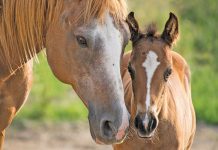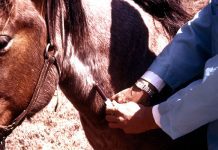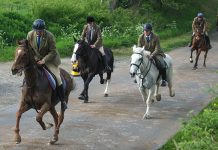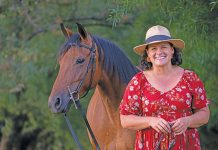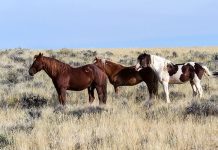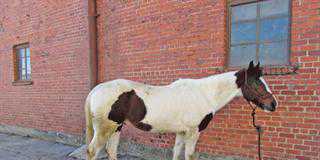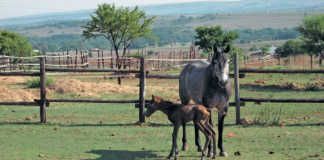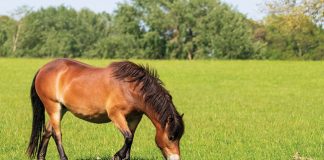Are they nervous and highly strung? Find out by answering the following questions, suggests Kim Dyson.
In this questionnaire there are no right or wrong answers. The results will help you know what types of personality your horses have. There are three basic instincts horses will need to survive out in the wild – “hunter”, “need friends” and “run, Forrest, run”.
Knowing which is stronger in your horses means you can better control and manipulate their behaviour when teaching them tricks. Points: 10 points for “almost always”, 5 points for “occasionally” and 0 points for “seldom”.
Instinct 1: Hunter
Do your horses:
- Paw or sniff the ground a lot?
- Get excited by moving objects, such as a donkey cart or rabbit?
- Like to stalk things such as a dog or rabbit in the grass?
- Kneel down to eat grass from under a fence?
- Enjoy carrying or playing with things in their mouths?
- Eat their food fast?
- Call out in a high-pitched whinny when happy or excited?
- Make endearing sounds when you come to feed them?
- Chase others away from their feed?
- Put their ears forward?
Total:
Instinct 2: Need friends
Do your horses:
- Get along with other horses?
- Get along with other people?
- Call to others when left alone?
- Love to be close to other horses?
- Enjoy being groomed or grooming other horses?
- Follow you around like a tail?
- Enjoy playing with other horses?
- Run up to you or other horses?
- Keep their ears pricked up and forward when other horses walk up to them?
- Show an interest in other horses through mounting or winking?
Total:
Instinct 3: Run, Forrest, run
Do your horses:
- Run away from foreign sounds?
- Act fearful in unfamiliar situations?
- Dance around while you groom them?
- Not enjoy being washed or groomed?
- Not enjoy being patted?
- Shows signs of anxiety when reprimanded?
- Spook at new things?
- Submit to other horses?
- Run in the opposite direction of danger?
- Have fear in their eyes when exposed to new sounds or objects?
Total:
Interpreting the results
Any number above 50 is considered high. The closer your horses get to 100 the stronger the instinct, but there will be a bit of all three in them. That’s because all are required to survive in a herd.
At the same time, please remember that scoring low on an instinct is not a bad thing! And scoring high is not necessarily a good thing. The numbers simply teach you about your horses.
If your horses are high on hunter instincts, it will be easier to teach them with treats. The horse that needs friends will enjoy their time with you while learning new tricks. If your horses score high on their “Run, Forrest, run” instinct, it may be difficult for them to concentrate on the tasks you give them because of nervousness.
Spend the next two weeks observing your horses. Horses are most happy when they’re in the situation they score high in. If your horse’s instinct is low in an area they’ll be uncomfortable in that situation, and learning new things will be harder.

